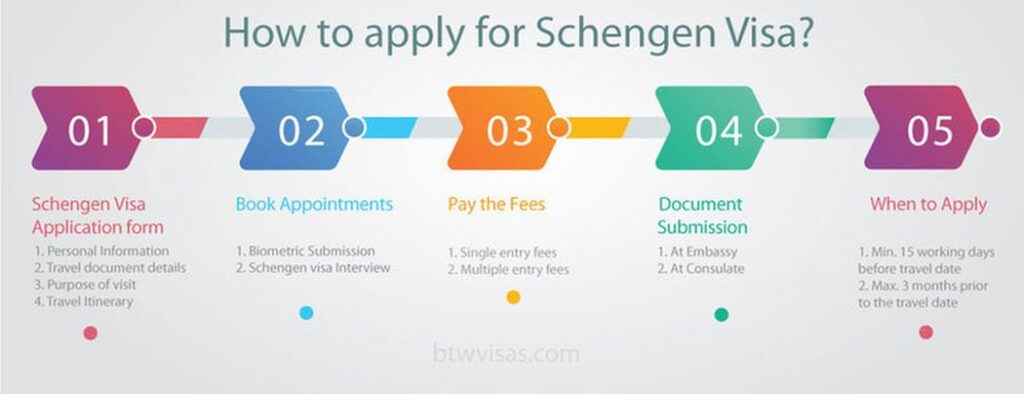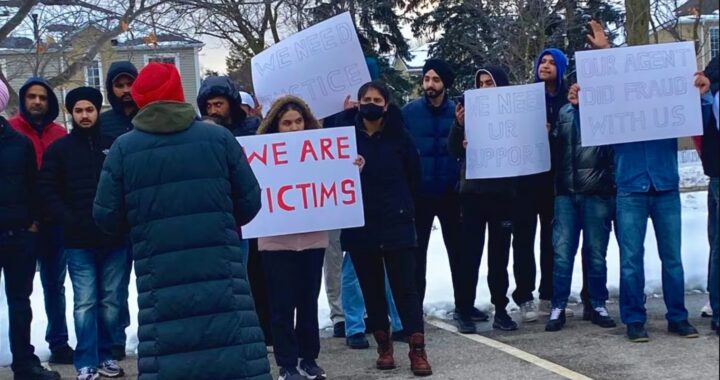All About Schengen Visa- Process to Apply- Reasons for rejection- Appeal Process- Sponsor Requirements

All About Schengen Visa- Process to Apply- Reasons for rejection- Appeal Process- Sponsor Requirements
The Schengen Visa is a type of visa that allows its holder to travel freely throughout the 26 European countries that are part of the Schengen area. These countries have abolished internal borders and established a common visa policy for short-term stays of up to 90 days within a 180-day period.
Countries Covered in Schengen Visa
The Schengen area includes 22 member states of the European Union (Austria, Belgium, Czech Republic, Denmark, Estonia, Finland, France, Germany, Greece, Hungary, Italy, Latvia, Lithuania, Luxembourg, Malta, Netherlands, Poland, Portugal, Slovakia, Slovenia, Spain, Sweden) and four non-EU countries (Iceland, Liechtenstein, Norway, and Switzerland).
The Schengen Visa is designed to simplify travel arrangements for visitors to the Schengen area, as it allows them to enter and exit the area without the need for multiple visas. It is also intended to promote tourism, business, and cultural exchange between the participating countries.
For which Country Primarily Schengen Visa be applied?
To obtain a Schengen Visa, an applicant must first determine which Schengen country they will be spending the majority of their time in. This country will be responsible for processing the visa application, which can be done at the embassy or consulate of the chosen country.
Process to Apply Schengen Visa
The application process typically involves filling out a form, providing supporting documents (such as a passport, travel itinerary, proof of accommodation, and financial means), and paying a fee. The processing time can vary depending on the country, but it usually takes between 2 and 15 days.
Usual validity of Schengen Visa
Once the visa is issued, it will be valid for a specified period (usually up to 90 days within a 180-day period) and will allow the holder to travel freely within the Schengen area. However, it is important to note that the visa does not guarantee entry into any of the Schengen countries. Border officials have the authority to deny entry if they believe that the traveler poses a security risk or does not meet the entry requirements.
If you are applying for a short-term visa for tourism or business purposes, the usual duration of the visa is for the length of your intended stay, up to a maximum of 90 days. However, the consulate or embassy has the discretion to issue a visa for a shorter period of time if they deem it appropriate.
If you are applying for a long-term visa, such as a study or work visa, the duration of the visa may vary based on the specific circumstances of your situation.
Process to Apply Schengen Visa
It is intended to simplify travel arrangements and promote tourism, business, and cultural exchange. The application process involves filling out a form, providing supporting documents, and paying a fee, and the visa is valid for a specified period and does not guarantee entry into any of the Schengen countries.
Step 1: Determine which Schengen country you will visit
The first step is to determine which Schengen country you will visit. This is important because the application process may differ slightly from country to country.
Step 2: Determine the type of visa you need
The next step is to determine the type of visa you need. There are several types of Schengen visas, including tourist visas, business visas, and transit visas. You will need to select the appropriate type of visa based on your travel plans.
Step 3: Gather required documents
The required documents for a Schengen visa application may vary depending on the country you are applying to and the type of visa you need. However, the following documents are commonly required:
- A valid passport with at least two blank pages and valid for at least three months after the date of your departure from the Schengen area
- A completed Schengen visa application form
- Two recent passport-sized photographs
- Travel itinerary including flight and accommodation reservations
- Travel medical insurance with a minimum coverage of €30,000
- Proof of financial means to cover your stay in the Schengen area (such as bank statements, payslips, or sponsorship letters)
- Proof of ties to your home country, such as a job contract, property ownership, or family ties
- A cover letter explaining the purpose of your trip and why you are applying for a Schengen visa
Step 4: Make an appointment
Once you have gathered all the required documents, you will need to make an appointment to submit your application at the appropriate embassy or consulate. You can usually make an appointment online or by calling the embassy or consulate.
Step 5: Attend your appointment
On the day of your appointment, you will need to bring all the required documents and pay the visa fee (which varies depending on the country and type of visa). You may also be required to attend an interview with a consular officer.
Step 6: Wait for your visa to be processed
After you have submitted your application, you will need to wait for it to be processed. The processing time may vary depending on the country and the type of visa you are applying for. However, it usually takes between 15-30 days.
Step 7: Collect your visa
Once your visa has been processed, you can collect it from the embassy or consulate. You will need to bring your passport and any additional documents requested by the embassy or consulate.
Also read- All you need to know about EC Blue Card- Application Process, Fees and Processing time
What Documents of Sponsor’s are required for Schengen Visa Application?
When applying for a Schengen visa, the sponsor’s documents that may be required can vary depending on the purpose of the trip and the relationship between the applicant and the sponsor. However, some common documents that sponsors may need to provide include:
Invitation letter:
This letter should be written by the sponsor and addressed to the embassy or consulate where the applicant is applying for a visa. It should include information about the purpose of the trip, the duration of the stay, and the sponsor’s relationship with the applicant.
Proof of accommodation:
If the sponsor will be providing accommodation for the applicant, they may need to provide proof of this, such as a hotel booking or a rental agreement.
Proof of financial support:
The sponsor may need to provide proof of their financial ability to support the applicant during their stay in the Schengen area. This could include bank statements, salary slips, or tax returns.
Proof of legal status:
If the sponsor is a resident of a Schengen country, they may need to provide proof of their legal status in that country, such as a residence permit or visa.
Travel itinerary:
The sponsor may need to provide a detailed travel itinerary for the applicant, including information about flights, accommodation, and activities planned during the trip.
It’s important to note that the specific requirements for sponsor documents can vary depending on the country where the visa is being applied for, and the embassy or consulate’s individual policies. It’s recommended to check with the embassy or consulate beforehand to ensure that all necessary documents are provided.
Usual reasons that may lead to Rejection of Schengen Visa
There are many common reasons why a Schengen visa application may be rejected. Some of the most common reasons are:
Insufficient or incorrect documentation:
One of the most common reasons for visa rejection is the failure to provide all of the required documentation or providing incomplete or incorrect documentation. It is important to carefully read and follow the instructions provided by the embassy or consulate and provide all the necessary documents to support your application.
Lack of travel purpose:
Another common reason for visa rejection is the lack of a clear travel purpose or insufficient justification for travel. The applicant should clearly demonstrate the purpose of the trip, such as tourism, business, education, or family visit, and provide all necessary supporting documents to prove the purpose of the visit.
Inadequate financial resources:
Applicants need to demonstrate that they have adequate financial resources to cover their travel and stay in the Schengen area. If the applicant fails to demonstrate sufficient financial resources, the visa may be rejected.
Previous visa violations:
If an applicant has previously violated visa regulations, such as overstaying, providing false information, or working illegally, the visa application may be rejected.
Criminal record:
Applicants with a criminal record may face difficulties in obtaining a Schengen visa, especially if the crime is considered a serious offense.
Travel history:
Lack of travel history, especially to countries with similar visa requirements as the Schengen area, can lead to visa rejection. A history of overstaying, visa rejections or visa denials in other countries can also negatively impact a Schengen visa application.
Unreliable sponsor:
If the applicant is sponsored by someone else, such as a family member or an employer, and the sponsor’s financial status or legal status is questionable, the visa may be rejected.
Inconsistent information:
Any inconsistencies in the information provided in the application and supporting documents can lead to suspicion and rejection of the visa application.
Health or safety concerns:
If there are concerns about the applicant’s health or safety, such as infectious diseases, the visa application may be rejected.
It is important to note that each visa application is reviewed on a case-by-case basis, and the decision to grant or deny a visa is at the discretion of the embassy or consulate. Therefore, it is important to provide all necessary information and documents and be transparent and honest in the visa application process.
If your Schengen visa application is rejected, it means that the consulate or embassy has determined that you do not meet the requirements for a Schengen visa.
Appeal against decision to reject Schengen Visa
When your application is rejected, you will receive a formal letter stating the reasons for the rejection. Depending on the country, you may be given the opportunity to appeal the decision or submit a new application with additional information. However, in some cases, there may be no option for appeal or reapplication.
Impact of Rejection of Schengen Visa Application
It is important to note that a rejected Schengen visa application can impact future visa applications to Schengen countries and other countries, as visa applications require disclosure of previous visa denials. Therefore, it is crucial to ensure that your application is complete and meets all the requirements before submitting it.
Duration of Stay allowed in Schengen Area can be shorter than Visa Duration
It is important to note that the Schengen visa allows you to enter and exit the Schengen area within the duration of the visa, but it does not allow you to stay in the Schengen area for the entire duration of the visa. The duration of your stay in the Schengen area is determined by the border control officer upon entry and may be shorter than the duration of your visa.
Under What circumstances can Schengen Visa be Revoked?
After a Schengen visa has been issued, it may be cancelled or revoked in certain circumstances. Here are some of the most common reasons:
Change in circumstances:
If the circumstances of the applicant change significantly after the visa has been issued, such as a change in travel plans, purpose of visit, or financial situation, the visa may be cancelled.
Misrepresentation:
If the applicant has provided false or misleading information during the application process, the visa may be cancelled.
Security concerns:
If the applicant is deemed to pose a threat to the security of the Schengen area, the visa may be cancelled.
Violation of visa conditions:
If the applicant violates the conditions of the visa, such as staying in the Schengen area beyond the duration of the visa or engaging in unauthorized activities, the visa may be cancelled.
Passport issues:
If the applicant’s passport expires or is lost or stolen, the visa may be cancelled. Similarly, if the applicant obtains a new passport, they must ensure that the visa is transferred to the new passport before travelling to the Schengen area.
Request by the applicant:
In some cases, the applicant may request that the visa be cancelled. This may occur if the applicant’s travel plans change or if they are no longer able to travel to the Schengen area for personal reasons.
It is important to note that the decision to cancel or revoke a Schengen visa is at the discretion of the consulate or embassy and is based on a range of factors. Applicants are advised to carefully review the conditions of their visa and ensure that they comply with all requirements to avoid any potential issues with the visa. If there are any changes in circumstances, the applicant should inform the consulate or embassy as soon as possible to avoid any complications.
Does Issue of Schengen Visa help in Application for US or Canada Visa?
While having a Schengen visa does not guarantee approval of a US or Canada visa, it can improve your chances of getting approved. A Schengen visa is evidence that you have undergone a thorough vetting process and have been deemed eligible to travel to Europe. This can be seen as a positive factor by consular officers when evaluating your US or Canada visa application.
However, it is important to note that the visa application process for each country is separate and independent, and the requirements and criteria for approval vary. The approval of a Schengen visa does not necessarily mean that you will meet the requirements for a US or Canada visa, and vice versa.
Ultimately, the decision to grant a visa is based on a range of factors, including the applicant’s purpose of travel, financial situation, ties to their home country, and overall eligibility. It is important to carefully review the requirements and guidelines for each visa application and present a strong case to increase your chances of approval.

 Recent Changes to Canada’s Work Permit Rules and its impact on Immigrants from India
Recent Changes to Canada’s Work Permit Rules and its impact on Immigrants from India  Applications for UK Immigration witness major decline as the Immigration Laws undergo significant changes
Applications for UK Immigration witness major decline as the Immigration Laws undergo significant changes  Recent Changes to Canada’s Temporary Foreign Worker Program (TFWP) Effective May 1, 2024
Recent Changes to Canada’s Temporary Foreign Worker Program (TFWP) Effective May 1, 2024  Immigration Process to Latvia and Job Prospects
Immigration Process to Latvia and Job Prospects  Notario Fraud- a rampant fraudulent practice trapping immigrants to US and Canada
Notario Fraud- a rampant fraudulent practice trapping immigrants to US and Canada  Canada Immigrant Investor Program 2024- loaded with many good features- Check out here
Canada Immigrant Investor Program 2024- loaded with many good features- Check out here  What actions by Trump Government are in store for illegal immigrants in US? What are Challenges to deport illegal immigrants from US?
What actions by Trump Government are in store for illegal immigrants in US? What are Challenges to deport illegal immigrants from US?  What are changes in Canada Start up Visa Program and Self-Employed Persons Program. How would it affect the potential immigrants to Canada?
What are changes in Canada Start up Visa Program and Self-Employed Persons Program. How would it affect the potential immigrants to Canada?